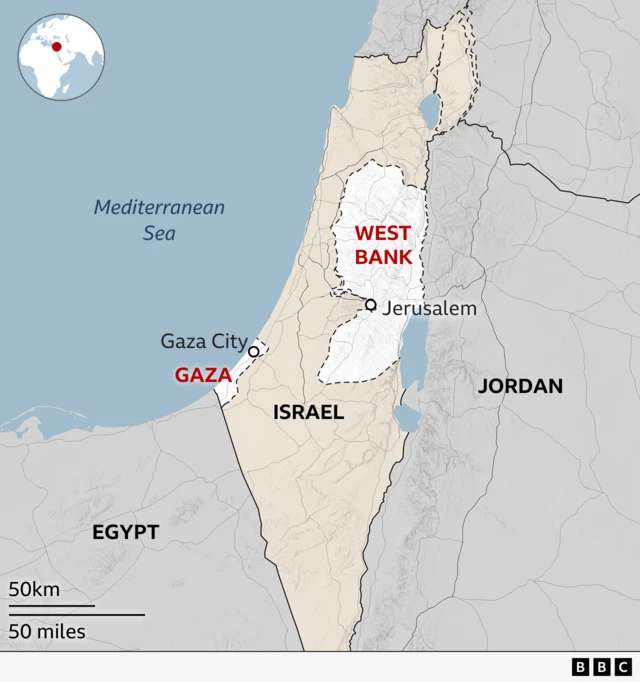NepalIsrael.com auto goggle feed

Palestinian state recognition changes little on the groundpublished at 08:49 BST
 Paul Adams
Paul Adams
Diplomatic correspondent
Palestine is a state that does and does not exist.
It has a large degree of international recognition,
diplomatic missions abroad and teams that compete in sporting competitions,
including the Olympics.
But due to the Palestinians’ long-running dispute with
Israel, it has no internationally agreed boundaries, no capital and no army.
Due to Israel’s military occupation in the West Bank, the Palestinian
authority, set up in the wake of peace agreements in the 1990s, is not in full
control of its land or people. Gaza, where Israel is also the occupying power,
is in the midst of a devastating war.
Given its status as a kind of quasi-state, recognition is
inevitably somewhat symbolic. It will represent a strong moral and political
statement but change little on the ground.
But the symbolism is strong. As the former UK foreign
secretary David Lammy pointed out during a speech at the UN in July:
“Britain bears a special burden of responsibility to support the two-state
solution.”
The phrase refers to the creation of a Palestinian state
in the West Bank and Gaza Strip, broadly along the lines that existed prior to
the 1967 Arab-Israeli war, with East Jerusalem – occupied by Israel since that
war – as its capital.
But international efforts to bring about a two-state
solution have come to nothing and Israel’s colonisation of large parts of the
West Bank, illegal under international law, has turned the concept into a
largely empty slogan.

The post”Israeli tanks advance into Gaza City as Trump to speak at UN General Assembly – live updates” is auto generated by Nepalisrael.com’s Auto feed for the information purpose. [/gpt3]




